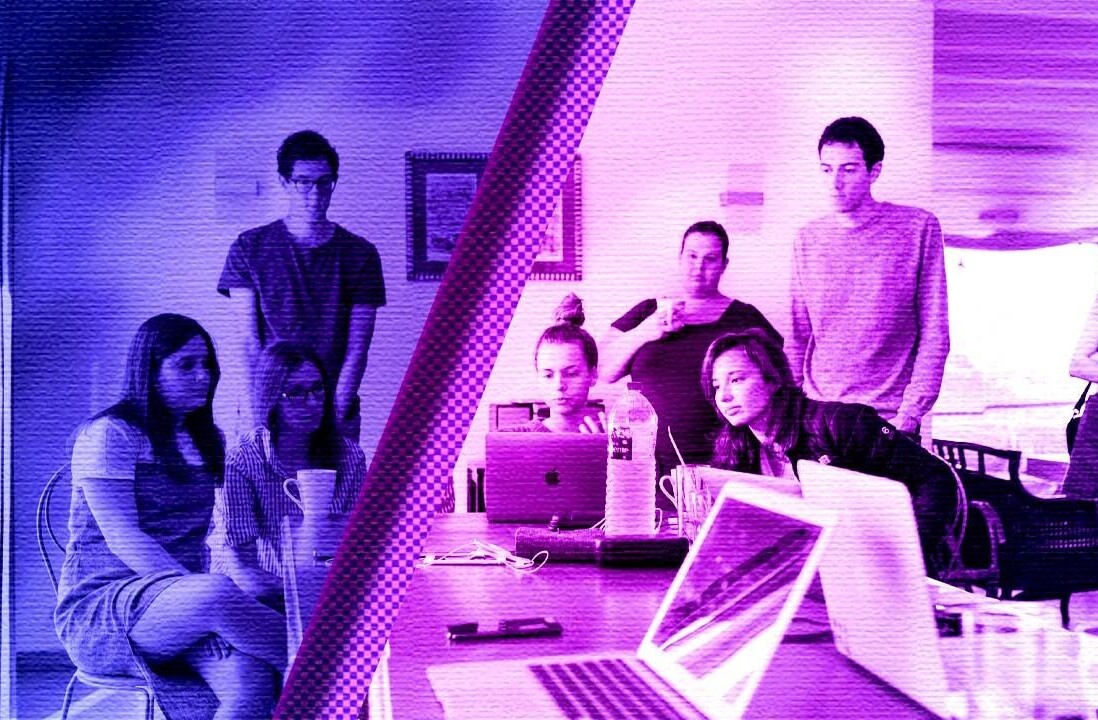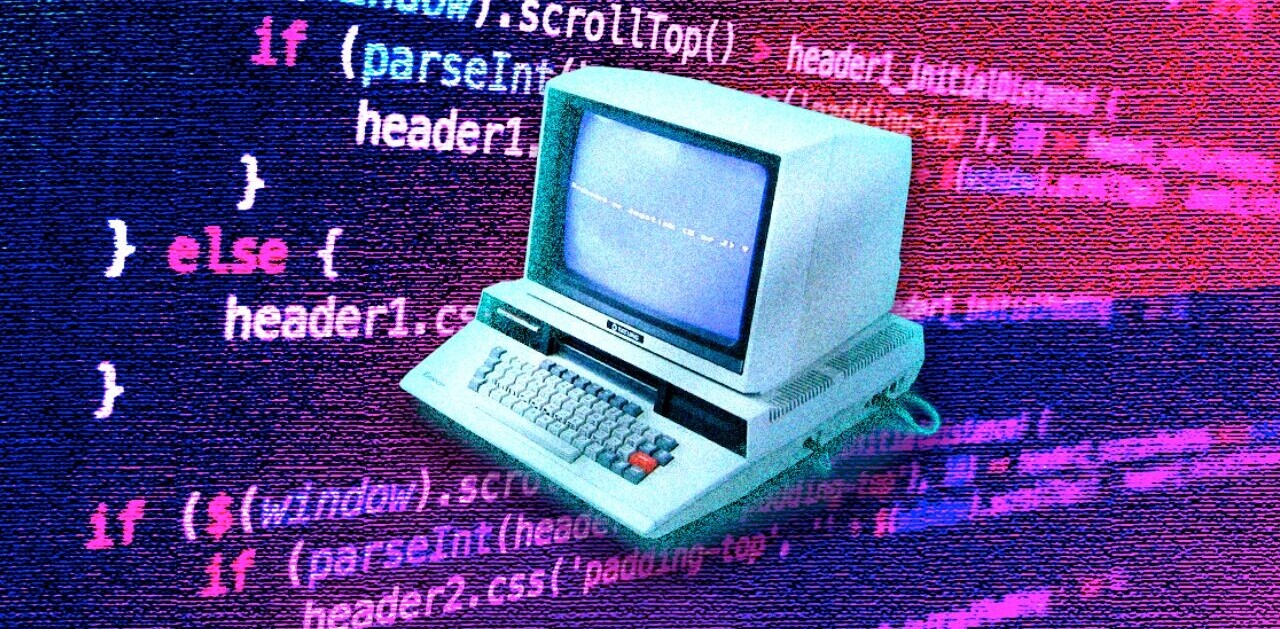
Adam Benzion is the founder of Entirely—a Seattle startup focused on social innovation, keen on connecting more people in more places to create special things together.
“Everybody in this country should learn to program a computer, because it teaches you how to think.”— Steve Jobs
Anyone who’s paying attention these days has probably figured out that computer programming is fast becoming the new standard of literacy in our technology-driven economy.
Those with even a rudimentary knowledge of code will probably read this little article and chuckle. But for me and many other “business types,” not understanding coding has become a real handicap and a growing blind spot.
As an intelligent person who’s had a successful career in the software industry and even managed to deliver as technology entrepreneur, I hate feeling left out of certain conversations because I don’t know the language. I find my self in certain meetings feeling like a complete illiterate, and of course I’m forever in search of a kindred engineering soul to help me translate ideas into code for a lot of time and money.
Sometimes I suspect that I could have gone a lot farther and faster if I had seen the light earlier on in my career.
Today, if you are a tech entrepreneur, you might not need to know how to code, but knowing a little programming can make a big difference. It used to be okay to just be a manager and leave the tech to the geeks, these days, products are being developed at speeds never seen before, sometimes in weeks. The rates of execution, iteration and experimentation (lean) are neck-breaking, and you should be a part of it, hands-on, and not as an orchestrator only.
Everyone is tweaking, hacking, and experimenting. It’s time to get on board and understand what your team is developing. The good news is: It’s much easier than you think.
Upgrading your MBA brain is actually fun
Eager to cast off my illiterate status, I decided to do what every reasonable person should do in a changing environment: Learn something new. There are so many amazing resources online today that are free and beautifully made, I would have to be nuts not to.
My goal for this year is to hack and tweak and break everything (safe mode, no commits) and use that fancy GitHub repository once and for all! Here’s an overview of what I’ve tried personally which I hope will inspire you to get started.
I started here: Code.org
This is the easiest place to start learning the principles of coding through a set of interactive tutorials that’s actually fun. The structures and thinking of coding, and the value on efficiency, are all embedded in the deceptively playful and highly motivating games.
I played “enginerd” on this site with my 3.5-year-old daughter, who was very impressed with my skill at getting the Angry Bird to trump the pig. This one is painless, enjoyable, and aimed at kids, so anyone who can read can use this resource. There, no excuses.
Next up: Codecademy
This website is a great resource. The home page assumes no knowledge on the part of the user (thank goodness), but before you know it, you’ve used JavaScript to make your name dance in rainbow colors.
In addition to the site being valuable to me personally, it impressed me as an example of an engaging and dynamic training tool. The service is adaptive, and progresses with you.
Read: Programming through play: Why teaching kids to code will change how the rest of us code
Ready, young novice? Try Stanford’s Udacity
With a collection of lectures and classes from all over the country, this was another site which really made me appreciate the effort a lot of good people put into education and providing access to the best materials in the world.
As expected, this is a lot more academic, including complete lecture videos available for download. This moved me past fun and easy, but the videos are very insightful and give you a glimpse into the world’s finest computer science labs.
Check it out, and start using terms like Stack Overflow and Boolean completely at random to impress people who are under 5 or over 95. You can even learn how to build a search engine.
Bonus tip: If you have kids in your life, introduce them to programming logic with Robot Turtles. This board game for little programmers sneakily teaches the fundamentals of programming to young children and gets them started on the increasingly essential road to coding literacy.
Even if you aren’t convinced that learning to code is the future, Robot Turtles and similar sites expose children to a kind of thinking which is mathematical and logical while being flexible and creative, and they love it (as will you).
What’s the point of all this?
Perhaps you’re not going to become a software developer or an engineer. You’ll probably never rise above the level of rank newbie. But many of us know that learning even a few words and phrases in another language helps to open doors and make connections—and let’s face it, it often feels like coding types are speaking another language.
Learning the basics of code opens up your understanding of their world and helps you appreciate the miracles they sometimes pull off, and it’s great for your own thinking too. And if you want to take your new learning further, the odds are that your company has a website, an app, or both which you can add to, hands on.
That alone will make this one of the coolest things you could ever do for yourself.
Spread the word
The push for technological literacy isn’t just about individuals, either. In the past 100 years, more of the world’s nations and people have joined the global economy. For many developing nations, cheap labor was initially their greatest asset, but as literacy rates increased, so did the value of a nation’s human capital and its socioeconomic status around the world.
Fast-forward to the 21st century and the parallels are hard to avoid. The people and nations who are embracing this new standard of technological literacy also enjoy better employment prospects. It’s an unavoidable fact, and the Bureau of Labor predicts there will be nearly 140,000 brand new programming and technology positions created before 2022.
To survive in international business, you need to know how to read English; to make it in the tech economy you also need to have some understanding of the code that builds the digital world around you.
Watch this incredible video and hear it from epic success stories like Jack, Mark, Elena, Drew, Bill and Ruchi, and understand that the only things that stands between you and a new skill is you, a commitment and a couple of hours per week.
Coding is fast becoming the new standard of literacy. No matter who you are, your age or what you do for a living, it’s time to get on board.
Don’t miss: CheckiO’s coding game for Python developers
Get the TNW newsletter
Get the most important tech news in your inbox each week.






